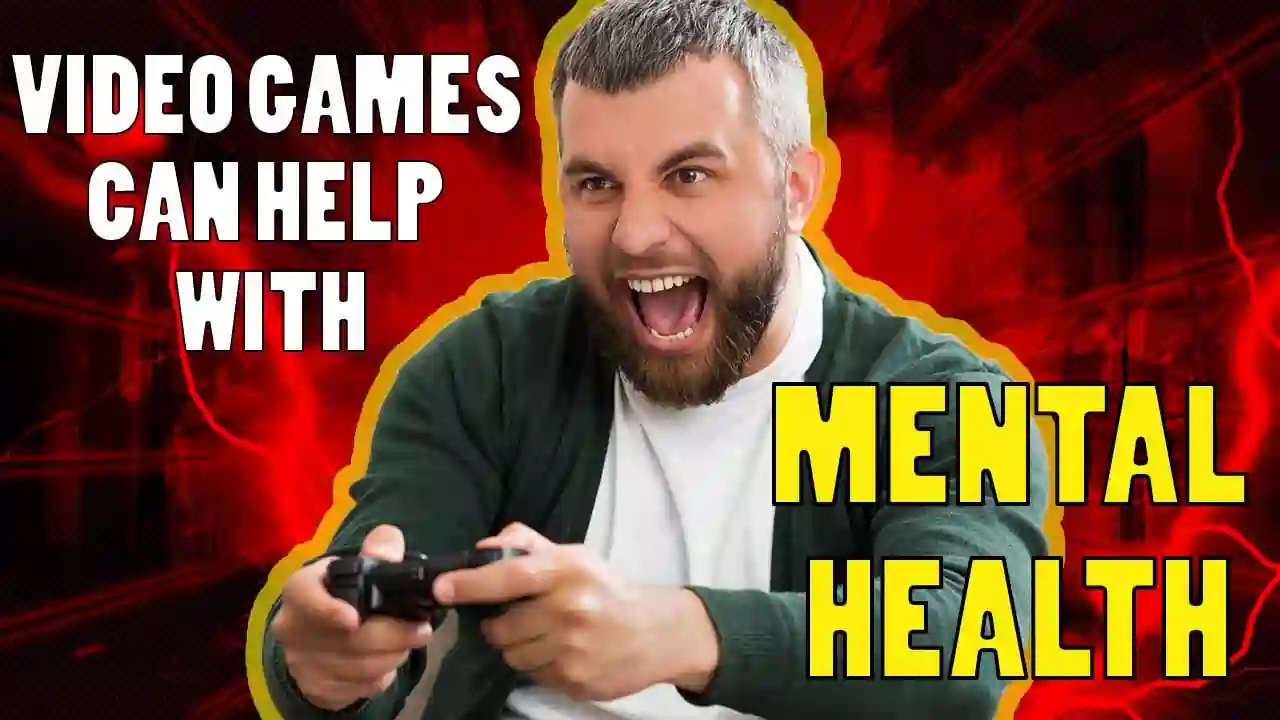Video games have been an essential part of our childhood memories and even now, people around the globe love to spend their time playing video games. But, you all have to agree that our parents always reprimanded us not to play a lot of video games, as it will make our eyesight and brain weak. Some part of this statement is true but not entirely. Recent research has been claiming that video games can actually help with mental health. Surprised? We were too. So we decided to gather data that’ll tell you how video games help with mental health? Let’s see:
Why are video games considered not good for our health?
So, this basically has been a myth that video games are bad for our health as they take us far from reality, but the truth is the opposite. Research has been made in this regard, and researchers found out that people who play video games have better cognitive abilities and mental health than people who don’t. Also, fitness-related video games are helping people stay fit and improve their physical health as well.
How can video games help with mental health?
The evolution of video games has brought some new and catchy options that improve the mental health of human beings. It’s not about snatching a car or killing the enemies anymore, but there is much more to this as a virtual experience. According to studies, video games might be a new solution to rising mental health issues. So, how exactly do video games help with mental health? Let’s find out:
1: Brain Stimulation
Video games do not only have players who you need to get to the final destination but there are missions and visionary places that add to the experience. While you play a video game, you try to absorb all the data in your mind, and to complete a mission your brain works with all its efforts. The simultaneous working of all brain parts makes you complete your difficult mission. In doing so, our brain gets stimulated and our critical thinking abilities and strategic skills improve. It also plays a crucial role in the progression and development of the brain parts.
2: Feeling Accomplished
Feeling heard and feeling accomplished is what humans most long for. The human brain is a complex territory but it loosens its boundaries due to the adrenaline rush. And that adrenaline rush happens when people achieve a certain goal while playing video games. This sense of achievement boosts their confidence and works on their overall well-being.
3: Mental Health Recovery
Video games are played as an escape from traumatic events for people. The majority of people shift their interests toward video games to avoid thoughts of any past trauma. It also helps them cope with pain and psychological issues. Keeping their mind busy with video games gives them a sense of relief and reduces the symptoms of anxiety, PTSD, and depression.
4: Social Interaction
It is often presumed that people who play video games do not have a social life or they cannot interact in the real world. But that’s not true. The online playing platforms let people make lots of friendships with a like-minded community of people. This washes off any feeling of loneliness and helps people become more socially active in the real world as well. The fear of facing the world that they keep in their mind subsides, all thanks to video games.
5: Emotional Resilience
Humans do not take failure quite well. They easily get caught in the web of negativity and tend to think worst of themselves and consider themselves losers. But video games help them snap out of this situation. Video games help them to learn how they can cope with failure and keep on trying. The constant effort people put into video games to win improves their emotional stability and uplifts their mood as well.
6: Affordable & Accessible
Let’s just all agree that video games are cheaper than mental health therapies. That’s why video games might be the best shot for people with mental health issues who cannot afford expensive therapies. Even video games are now made with the sole purpose of mental therapies which are cost-effective and work wonders on people’s mental health.
How often should one play a video game?
Not too often, as experts say. Playing video games can have a good impact on your mental health until you decide to play them all day long. A dedicated time slot to play video games during the day can maintain a healthy balance. Playing too many video games can restrict your thoughts and can also affect your social life.
Conclusion
Video games might have been painted as the culprit that has made people very unsocial. But research has revealed otherwise. Though it’s imperative to watch out for the frequency of playing video games to reap its mental health benefits. So, next time you grab that PlayStation, remember that you are doing a favor to your brain.

I look up to fitness as a lifestyle and love to pen down about it. I have 2 years of experience in content writing and I am here to share my research and knowledge on health and fitness.













